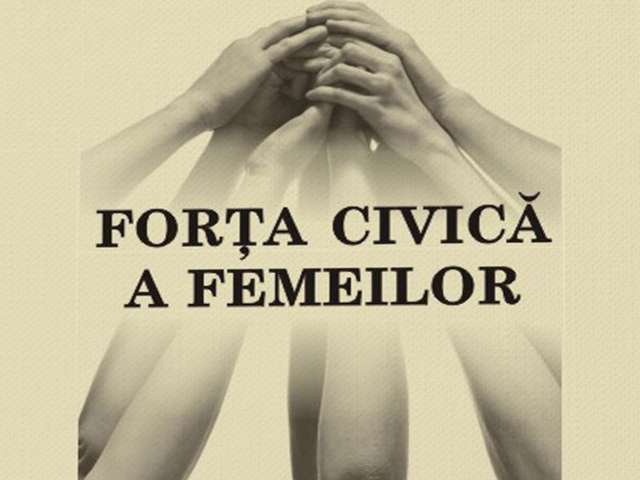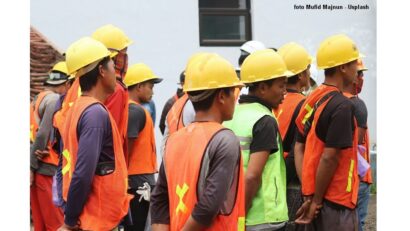Women and civic participation
As civic participation is on the rise in Romania, womens activism has become more visible, too.

Christine Leșcu, 24.10.2018, 11:46
At a time when civic participation
is on the rise in Romania, going through a period of revival, women’s activism
has become increasingly visible, too. Women’s civic participation has been
growing, just like the number of women entrepreneurs and their participation in
the political life.
The book market has noticed this
development too, and has started focusing on the phenomenon. In 2011, the
economist and politician Andreea Paul-Vass coordinated the publishing at
POLIROM of three volumes, in which several women tell the stories of their
success, be it in politics, economy or in terms of civic activism. The latest
volume, titled Women’s Civic Power has been launched this year and is
evidence of the fact that women are the majority in the NGO sector, as Andreea
Paul-Vass also told us:
The volume ‘Women’s Political
Power’ was published in 2011, telling stories about women from all political parties.
The second volume was released in 2016, titled ‘Women’s Economic Power’, to
which exceptional entrepreneurs contributed. So, the year 2018 was the right
time to highlight the civic spirit in women. Every time one of the three
volumes was published, I was working in that very field. That is why I was so
impressed listening to the stories of these great women, who dared to activate
their civic spirit. We, as women, have this natural drive and instinct to restore
balance, to improve society, to right the wrong. In civil society, women make
up the largest group. On the map of social innovators, 53% of those who set up
and run NGOs are women. As regards entrepreneurship, things are not that good,
but they are not bad either. One in three entrepreneurs today is a woman. As
regards politics, the situation is different from that in politics or civil
society. When ‘Women’s Political Power’ was published, approximately 10% of the
members of Parliament were women. But, less than a decade on, the number of
women in Parliament has doubled.
Journalist Daniela Palade
Teodorescu, a journalist with the Cariere
magazine offers an explanation for
why women are so involved in this field in such great numbers in Romania:
These women are proof that civic power
exists. Many of them are, for instance, mothers and daughters who have decided
not to keep complaining that their loved ones are ill and the state does
nothing to help them. They have just said: ‘I am the change. There is no point
in waiting for this system to give me something, and expecting change from the
top. I am going to militate for the rights of my children, of my parents, of
all those who suffer.’ In fact, this book is about what I like to call ‘the
power of vulnerability’. It’s about women who’ve been faced with critical
situations, but who have managed to overcome them and decided it was high time
they started doing something to help the others too. There are many anonymous
heroines, women who have made tremendous efforts without anybody knowing and
who actually don’t understand why people should talk about them. They believe
that they are doing what they are doing because they have to. But, still, the
fact that they are now in the limelight has motivated them even more, because
they have received confirmation that what they do is right, so they keep
going.
The stories of the 100 women
published in ‘Women’s Civic Power’ is also proof of women’s solidarity. The
value of a woman also lies in the number of other women they help stand up on their
own one of the protagonists says in the book. Here is Daniela Palade
Teodorescu again:
When you have an autistic child and
are referred to one doctor and then to another and sent from one hospital to
another and when your child gets the wrong diagnosis you say you cannot
continue this way and that you must do something. You ask yourself, ‘What’s
this child going to do in life? Who’s going to take care of him or her? And
social networks have fostered the setting up of communities of people with the
same needs, which can have greater power.
By and large Romania’s
non-governmental sector is well developed; and that, according to experts,
stands proof of the government’s inability to deal with some issues. The
government doesn’t get involved in issues of great interest for society and
doesn’t allow them any funding, says feminist Mihaela Miroiu, a professor at
the National School of Political and Administrative Studies:
Another process, which is happening
in Romania and which the aforementioned book deals with, is the fact that an
NGO will in time turn into a genuine professional organisation, which means
that the people working there will become experts, honing skills in their
fields of activity. While the political field is characterised by amateurishness,
incompetence and deceit, the non-governmental sector is producing experts. So
there is a societal rift, but the good news is that at least one part of this
rift runs smoothly and that’s the civic entrepreneurship.
A 2017 survey of the NGO sector in Romania carried by the Foundation for
Civil Society Development showed that out of the 88,000 existing NGOs only 42,000
were in fact active.






























